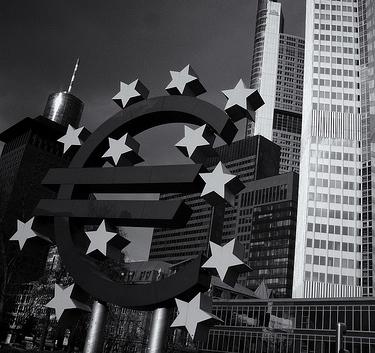The euro: breaking up isn't hard to do

It is an article of faith among almost all political parties in Ireland that the country’s future is inseparable from that of the euro. It is widely considered to be insane even to think of the alternative. If Ireland left the euro the economy would collapse, the country would have to default on its debts, and it would be frozen out of international markets, or so the story goes. There are too many practical difficulties in re-issuing an Irish currency and the national debt would still be denominated in euros, leaving a heavy burden for future generations.
Such suppositions are typical of the consensus view, but when something is generally assumed to be true, without much scrutiny or analysis, the consensus is often wrong. None of the objections listed above stands up to detailed scrutiny. There are no insuperable difficulties; the potential benefits of leaving are much greater than the costs of staying in; and Ireland could recover and prosper again surprisingly quickly with a re-launched Irish currency.
It is startling to see how wrong the political establishment has been on this question for so long. The euro was a somewhat experimental scheme from the start and required a high degree of optimism and blindness to inconvenient facts. In some countries there was heated debate about the practicality of the scheme, in others there was virtually none. The UK, Denmark and Sweden were among the first group and Ireland was firmly in the second.
Sadly, it is now apparent the UK, Denmark & co. were right to be sceptical and that Ireland made a fatal mistake by jumping headlong into the single currency scheme. A period of reflection and an opt-out would have been a better policy. A desire to upstage the old imperial master probably overcame rational judgment, at least to some extent. The euro was widely regarded as an organic development of the EU project that had brought so many benefits to Ireland. It seemed churlish to grumble about “minor” issues like monetary sovereignty or independent fiscal policy.
This complacent stance might have been excusable in the hopeful years prior to the formation of the euro, but now, after a decade of failed policies and at the start of a second one, it is remarkable how few dissenting voices are raised. Ireland’s devotion to the euro through thick and thin is reminiscent of its former attachment to another faith-based system with its origins in Rome.
The fact is that Ireland’s economic problems could be resolved much more quickly, cheaply and much less painfully outside the euro than in it. Leaving the euro in the present circumstances does not necessarily require leaving the EU. Ireland has demonstrated its commitment to Europe. It is the euro that has failed, not Ireland’s resolve to participate. The national debt is more likely to be repaid, more quickly, and at lower cost, outside the euro.
Ireland could return to sustainable economic growth within two or three years if it quit the single currency - whereas if things stay as they are it is condemned to a decade at least of austerity and contraction. There are several ways in which Ireland could relaunch an independent currency in a relatively short timescale and at reasonable cost. Many of these options would have a favourable impact on Ireland’s ability to service euro-denominated debt and could be highly advantageous in terms of trade and competitiveness.
I worked in a minor role in the banking industry when Ireland last took itself out of an existing currency union - the break with sterling in the 1980s - and I saw first hand what was required. It is far from impossible. It can be done and it has been done already in this country in living memory. All that is required is the political will to look to the future and discuss possibilities rather than externally imposed policies and restrictions. That is why previous generations fought for independence, after all. The political establishment should be willing to debate facts rather than articles of blind faith. Once the blinkers are removed there is a much brighter future in prospect.
Image top: Nils Bremer.
